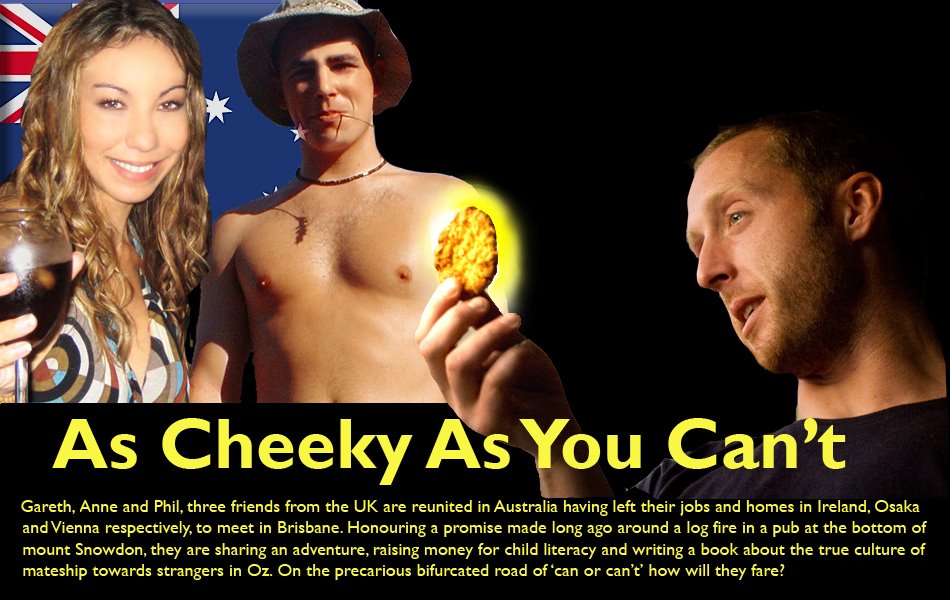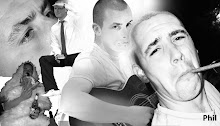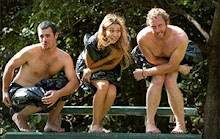A flying fox soars over head
‘Mataranka thermal springs, go there, you will love it’, cried anyone we spoke to who had visited the Top End. Now, without dismissing the authenticity of such statements, it was not without a pinch of salt that we listened to them, because, in the desolation of amusement that is driving the Outback, where counting roadkill counts as fun, and where falling asleep at the wheel is only prevented when you find an obscure radio channel broadcasting old Scottish ladies reciting old Scottish poems, or an investigation into the ‘toothless people of London’, you learn that ‘loving it’ may be relative to the unending boredom of repetition.
The immense number of flying foxes fight for a space to hang in the trees
Having previously seen a grinning nine foot Pink Panther smoking a pipe we were prepared for perhaps a giant statue of Ned Kelly urinating thermal spring water into a giant bath-that-used-to-be-a-fuel-tank, but it was not anything of the kind. We found the thermal pool not far from the site of the reconstructed Mataranka Homestead, home of Jeanie Gunn, author of the book “We of the Never-Never”, who lived there in 1902, when the Stuart Highway was a dirt track, and the Never-Never meant the back of beyond past the middle of nowhere. Her home was recreated when the film of her life was made, and now a pub resides nearby catering for the visitors who throng there, no doubt, told, like us, that they should not, in the avalanche of sameness, miss out on the one thing worth seeing.
The aquamarine waters of the hot springs
The unwalled part of the hot spring swimming pools
The thermal springs themselves are located a short distance from the Homestead, on a curving path past the pub (of course it is. How many visitors never-never make it any further?) and along a walkway through the tall, shady Mataranka Palm and Paperbark trees that line it and the water that surrounds it.
The colony of Flying Foxes make quite a din. 200,000 of the little reds spiral in columns above the foliage whenever the sun sets.
They use their tongues to get nectar and pollen from eucalypts and other trees, spreading seeds of nature much like bees. It's really quite hard to aptly describe the sounds and scenes from the immense numbers of these fury flying friends. They are everywhere. Swooping low and flying high, the beating of wings make an amazing swooshing sound and I expectantly turn round, surprised to not find Adam West or Christian Bale looking at me with intense masked eyes.
It was with a neat sense of disbelief that we saw the thermal pool, enclosed as it is by stone steps and walled around in an arc. Apparently it was built for army generals, who would bathe here during the war. The spring flows in a serpentine curve through it, but you are encouraged to remain in the pool. For safety reasons.
We join some aborininal boys in the pools to cool down
The thermal pool maintains a near constant 34º Celsius, which is, despite the humidity and heat, very refreshing to lounge around in. As we escaped from sticky clothing, and floated, soothing our travel sore muscles the light filtered down between the tall palm trees, lingering softly, silhouetting the red flying foxes nesting and bustling above us, the hubbub of their activity adding to the backdrop, while their splashing guano added to the pool.
Anne makes some friends with some visiting Aboriginal guys as they enjoy a beer by the waters
After relaxing there awhile we approached the pub for something to eat and were treated to some lunch, which we had while the Aussies played South Africa in the first of five Test Matches. Anne, no fan of cricket, turned her back in disdain and attempted conversation with two gawping, slowly chewing guys, and gave up, preferring real life to the cricket. Our Aussie friends Matt and Grant have subjected Phil and I to hours of cricket, and I suppose, by osmosis, we have come to love it.
But it is a ridiculously drawn out game. When Anne asks ‘how long does it last?’ we can see she envisages a time in the not too distant future when she may be able to communicate with her friends in a normal, adult way, so when we look at one another then mutter into our sandwiches ‘5 days’ we know she is testing the limits of her resolve. A game that lasts for 5 days is one you have to want to see to put up with. The fact that it cannot end after 1, or 2 days, or even 3 unless one of the teams is truly rubbish (the Accrington Stanley of Test Match Cricket. Accrington Stanley? Who are they? Exactly) renders it a sport incomprehensible to those who know nothing about it. And there are many of those who wish to remain so. Anne toasted her sandwich with the fire of a thousand years of torment as Hayden was caught at mid-off and the crowd went wild.
Read a cheeky bit more!


















